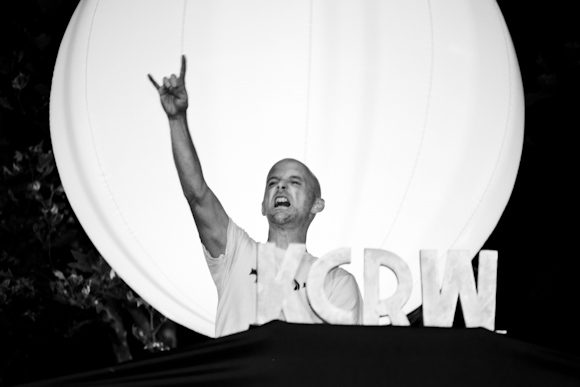

Moby is the kind of artist that instantly brings a smile to your face. His convictions are held close to his heart and his passions projected fiercely and honestly—whether through veganism, his feelings on President Donald Trump or a vast musical catalog that he speaks of in humble, eloquent tones as if still shocked he’s reached this pinnacle. He certainly uses his pedestal for activism, communication and change. This is apparent in his episode of Netflix’s Once in a Lifetime Sessions, where insight’s given into a handful of artists including Moby as well as TLC, Noel Gallagher and more. It’s an in-depth look into the musician’s process, showcasing the artists in a very different and unique light.
He’s very aware of the people around him and is empathetic about what he says. He unveils talents that the average fan might not know. For instance, he’s a fairly strong guitar player and got his start in a punk band called Vatican Commandos. Moby is seen by many as a sort of shaman, where fans hang on his every word… and why shouldn’t they? He has unfettering charisma, is well-spoken and passionate.
Moby has been on a tear lately releasing multiple albums in the past couple of years including 2017’s brilliant Everything was Beautiful, and Nothing Hurt. He has opened businesses, written novels and has pushed activism to the forefront of his career. Mxdwn was able to speak with the legendary musician thanks to his appearance on Once in a Lifetime Sessions to discuss the show, living in the spotlight and his disdain for Donald Trump.
mxdwn: When I was watching the Netflix Original Show Once in a Lifetime Sessions it looked and sounded as if those sessions were extremely cathartic. What was it like going through the process of the show?
Moby: I mean, at this point, there are a lot of things that I guess I’m doing personally and professionally. I think it’s sort of a function of just being old, doing a lot of things that have this… there’s this combination of Proustian therapy, but done in a public forum. So, it’s actually really interesting. I wrote a memoir a couple years ago, and I just finished writing the second one and doing stuff like this. There’s an interesting relationship that you develop with your past when you’re forced to talk about it or represent it in a sort of concise and ostensibly entertaining way.
For example, we all have our past. We’re relatively aware of our past, but rarely do we have to be almost like a public apologist. I mean that in like the old classical sense of being an apologist where you have to defend the thesis of your past. It’s a really interesting process and I guess selfishly, if nothing else comes out of it, it’s a really fascinating form of therapy.
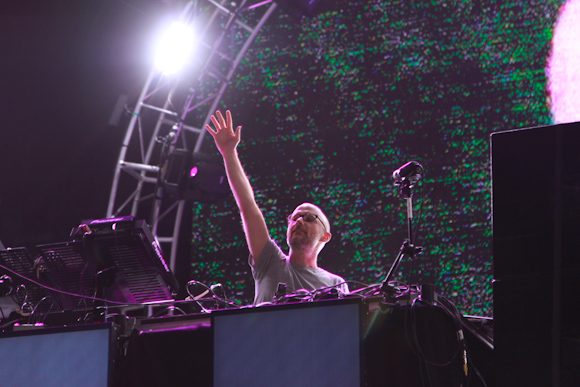

Photo Credit: Marv Watson
mxdwn: How reluctant were you to open up about some of those past stories?
M: The only reluctance or hesitation I ever have is compromising anyone else. Or I guess, there’s another reluctance—my only hesitation is presenting things in a way so that they at times might be too off-putting for people. I don’t mean that in terms of losing an audience. I mean that in terms of not being able to be of service.
One of the goals in—we’ll call it voyeuristic, public, therapeutic sharing—is to somehow connect with someone who might be ashamed of things in their own lives or their own life that they’re very uncomfortable sharing. When they hear someone sharing it in public, it maybe makes them a bit more comfortable with their own past and recognizing some of the stuff that they’ve been hiding or they’ve been ashamed of actually is shared by at least one other person and most likely a lot of other people, if that makes any sense.
I guess also one of my presumptuous goals in life is to… and there’s a sort of abject lesson here. I worked under the assumption when I was growing up that if ever I had the right combination of money, fame, career, esteem, et cetera, that I would be just phenomenally happy. But then the universe, because it has a funny, interesting sense of humor, gave me everything I wanted times 1,000. So there I was the height of my success and I’d never been less happy. But in addition to the depression and the anxiety, there was also entitlement, anger and bitterness. I was like, “Why do we all keep doing this? Why?” It doesn’t take a genius to look at the evidence that having a lot of money, having a lot of fame doesn’t really do anyone any favors. I don’t know if you’re following the saga of Elon Musk.
Or Donald Trump. Donald Trump is the President of the United States, and he’s probably the least happy human being on the planet. So, it’s trying to get… and I don’t want to be all, too crazy about this, but we all beat ourselves up when we don’t have… We all assume like, “Oh, if I was younger, if I was prettier, if I was more successful, if I was a rock star, if I was a movie star, if I was super rich, I’d be so much happier” even though there’s no evidence to support that idea. It’s this terrible system that just creates misery for everyone. The people who have it, I can’t imagine that Elon Musk is too terribly happy right now. And then the people who aren’t Elon Musk are unhappy because they feel like they’ve failed because they’re not famous and rich and successful. I just think it’s time to look at the evidence and to stop destroying everything in pursuit of this success that doesn’t create happiness even when it’s achieved.
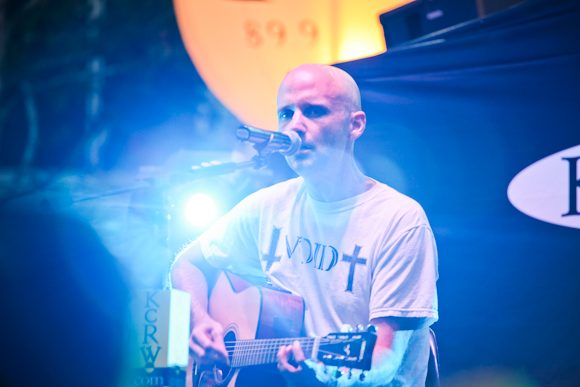

Photo Credit: Pamela Lin
mxdwn: I wanted to ask and get your thoughts on Donald Trump. I read your social media posts [regarding Trump and Russia]. Do you think Trump will be impeached? Do you think the Mueller investigation will uncover anything?
M: No. I mean, on one hand, it’s funny. We—and I’m guilty of this… I think we’re all guilty of this—is we’re surprised when actions have logical consequences. What I mean by that is, for example, if you have a friend who’s really out of shape and eats terribly, if they change their diet and they start exercising and doing yoga, in a year, guess what? They’ll have lost weight and they’ll be in good shape. It’s not surprising that those actions have consequences. It’s kind of like the collapse of the Soviet Union. When it collapsed, people were so surprised. Now in hindsight, people are like, “Yeah, but their economy was unsustainable.” There are all these foreign service people who in hindsight were like, “Oh, we should have seen this because it was so clear in hindsight.”
Right now, looking at the Trump Administration. I’m going to be really surprised if Donald Trump is still President in six months. Whether he’s impeached, whether he resigns. Maybe I’ll be wrong. Maybe he’ll run for re-election in 2020 and he’ll win. Who knows? Americans have proven to make the same mistakes over and over again in the past. I just think the depths of his corruption going way back even to Roy Cohn, his lawyer back in the ’70s and ’80s, there is so much. It’s staggering. I think that it’s really fascinating that arguably one of the most sociopathic, incompetent, corrupt human beings in the United States was elected president. I think people keep assuming like, “Oh, he can’t be that corrupt.” I’m like, “You don’t even know the depths of it.”
For him, corruption was a way… He was never very smart and he was never very good at what he did, so the only way he could succeed was through lying and corruption. You can’t do that and expect to get away with it forever. That’s why I think at some point, he’s going to resign. The depths of this is going to come up, and he’s going to be confronted with all this evidence. He’ll realize like, “Oh.” But also, there was a culture of… his culture of corruption. If you talk to people in New York who were around in the ’70s and ’80s, they’re like, “Yeah. It was like a truly horrifying, incompetent organized crime family.”
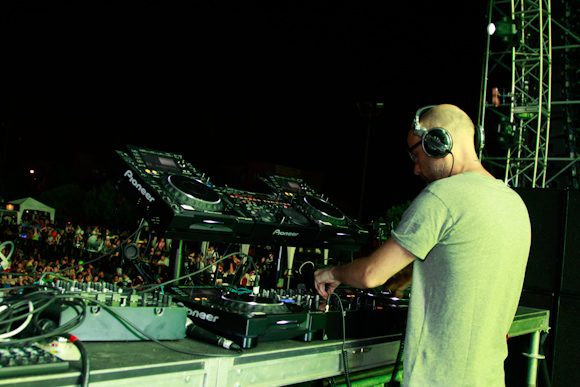

Photo Credit: Marv Watson
mxdwn: Do you think there is a conduit that runs between electronic music and punk rock? Do you see a parallel between being in a punk rock band like Vatican Commandos and then leading this quest into electronic music?
M: Personally yes. Also the sort of the musical environment I grew up in, New York in the early ’80s, the two genres co-existed. All genres co-existed very happily, a club like Danceteria being a perfect example where you would have Mission of Burma and Bad Brains and hip-hop DJs and disco DJs and goth DJs all playing in the same night. You would go from floor to floor. When you got bored of the hip-hop DJ, you’d go see Bad Brains. When that show ended, you’d go to the video lounge and watch Bauhaus and Joy Division videos, then go up two flights and have a phenomenal gay disco. That eclecticism and that benign coexisting of genres always made sense to me and especially I guess the most common thread for me or the way in which electronic music and punk rock share an ethos is that DIY ethos.
Punk rock was all about like, “Oh, don’t worry about a major label. Don’t worry about radio play. Just make a record. Your friends will play it, hopefully, your friends who work in a record store will sell it and you’ll play a show for 20 people.” Early electronic music was the same thing. You would never release a record, a single on a major label. Some underground record store would sell it and underground DJs would play it. It was very much… the expression is like “sui generis,” like self-generated. [It was] sort of a rejection of and a distrust of more conventional channels for creating and releasing and promoting music.
mxdwn: You did this beautiful acoustic rendition of “Porcelain” on the show Once in a Lifetime Sessions. How did you approach arranging that song as an acoustic song versus your original more electronic version?
M: Part of it was a degree of laziness. What I mean by that is the original song has these very distinctive chord parts, the sort of the strings that everyone associates with the song. But underneath it is a sort of basso ostinato of A major to E minor. I decided not to relearn how to play those, the strings, and just on acoustic guitar just focus on the underlying A major to E minor. Sometimes when I play it acoustically in front of people, I actually announce it beforehand so that way people won’t get confused by what song it is. It is a little weird to play one of your own songs and remove the most recognizable part of it.
Yeah and I like that there’s this sort of—I don’t even know how to describe it… the slightly resigned, sad, vulnerable core of the song by stripping it down. But really the stripping down was just because I was too lazy to learn how to play those chords on guitar.
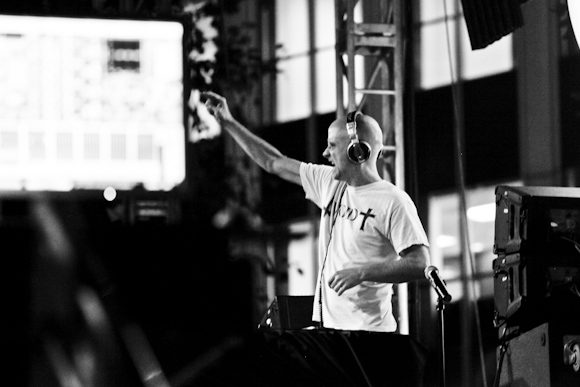

Photo Credit: Pamela Lin
mxdwn: What’s next for you? Are you putting out any more records? Are you constantly working? Are you getting ready to tour?
M: Yeah. I put out records and I do everything in my power to avoid touring. I mean, at this point, the joy that I get from making music is simply the act of making music and not necessarily trying to monetize it or promote it. It’s just the joy and love and satisfaction I get from being in my studio working on music.
I guess broadly speaking, my day job now is activism. To me, that’s more important than anything else that I’m doing whether it’s political activism or animal rights activism or environmental activism. Everything else is kind of like… Music is something I really enjoy, but in a way, in a weird way, I don’t see it as my job anymore.
mxdwn: Do you feel you’re using your music as a vehicle for that activism or is it the other way around?
M: No, I definitely, I try to use everything as a vehicle for activism. I just don’t always know how to do it as well as I’d like to, so every day wake up and do what you can in the hopes that maybe somehow, you’re getting it right. And here’s hoping that the Democrats take back the House and the Senate and State Legislatures and Governorships on November 6th.
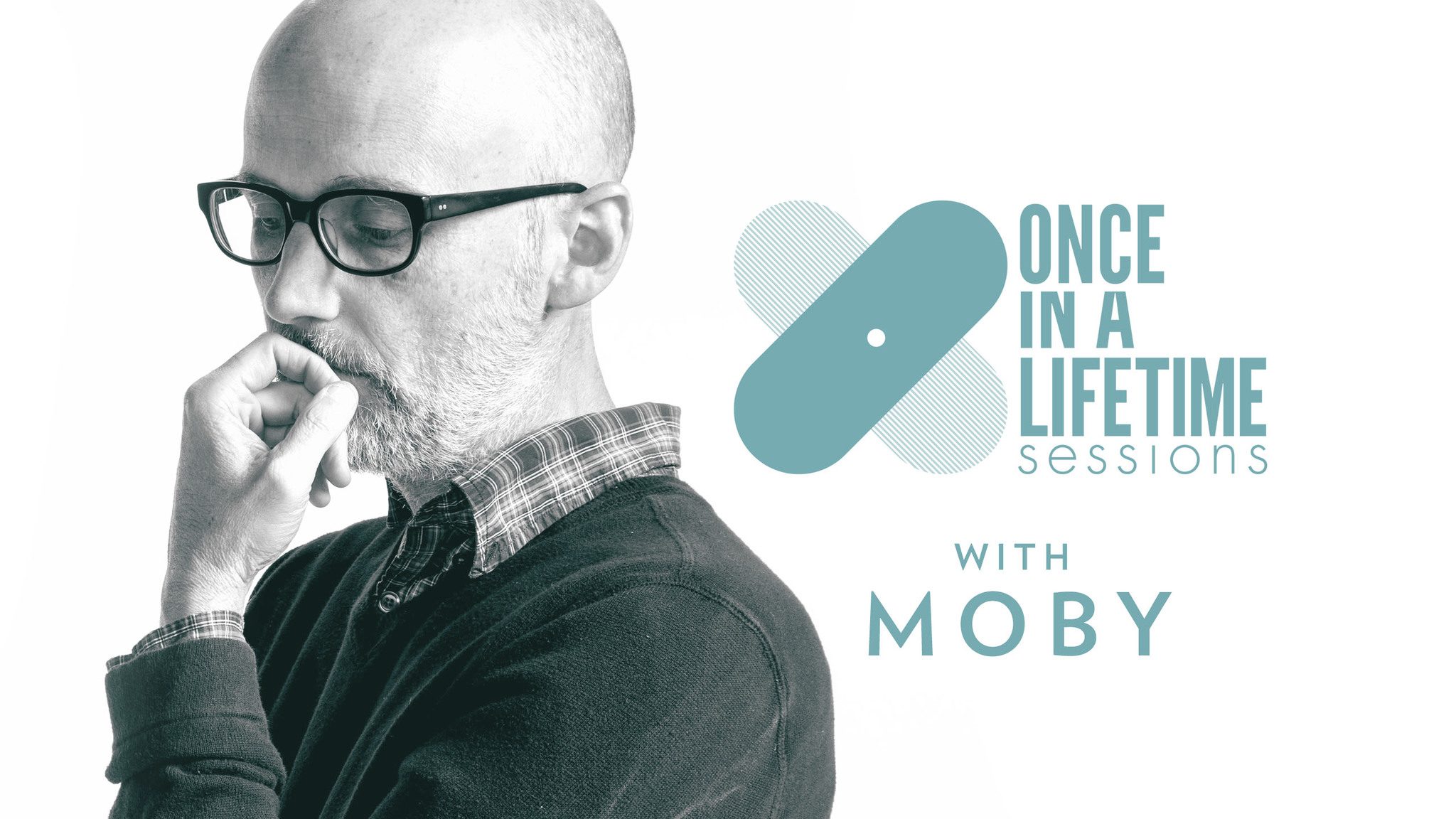

Featured Image Photo Credit: Pamela Lin
